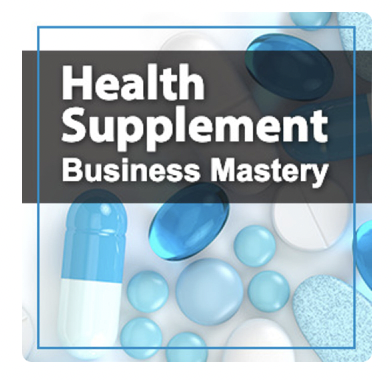Is starting a supplement company a good idea?
A successful dietary supplement company is not an easy, long term business to build. Yet long term supplement companies are the most successful.
They have more impact in the world than the fly by night bottle pushers without any real uniqueness.
And in today’s world, more than ever, we need more GOOD dietary supplement companies to take a stand, think long term and make a bigger impact.
In 1994, the Dietary Supplement Health and Education Act, made it possible for dietary supplements to be freely sold in stores everywhere. A few years later the Internet began and overnight hundreds of new dietary supplement companies sprang up online.
Today, there are over 432 sports nutrition brands selling dietary supplements online. Sadly many of them will fail. But they don’t have to if they properly prepare for what we see as the most common causes of failure of a dietary supplement company.
10 Reasons Dietary Supplement Companies Fail
1.) Underestimating the FDA
The biggest misconception in the industry is that dietary supplements are not regulated by the FDA.
That’s not entirely true.
The FDA does have a tie into supplement businesses through a regulatory set of rules called cGMP, or current good manufacturing practices. GMP requirements were established to be flexible in order to allow each manufacturer to decide individually how to implement best the necessary controls of safely using scientifically sound design, processing methods, and testing procedures.
The FDA inspects pharmaceutical manufacturing facilities worldwide, including facilities that manufacture active ingredients and the finished product. However, the misconception is that GMP applies to just the manufacturing facilities of dietary supplements. While they do strictly enforce the manufacturing end of supplements, they also enforce the marketers and distributors of dietary supplements.
2.) Skipping out on business insurance
Business insurance is normally the last thing a new dietary supplement company thinks about. And I can’t blame them. Insurance is incredibly confusing. There’s product liability, errors and omissions, inventory, directors and officers, and the list goes on and on.
We can’t demystify all of them here. However, product liability insurance covers a company and its assets if their dietary supplements harm a consumer. Without this, it’s difficult to cover medical expenses if your supplement company gets sued.
3. ) Weak product formulations
Far too often there is not enough thought that goes into the formulation of a dietary supplement. Putting a bunch of ingredients together using Google is not the most scientific way of developing a supplement product.
What’s equally worse is just ordering a formulation from a catalog, because there is no uniqueness.
Putting some money into professional scientific advisors and consultants or funding a legitimate scientific study is the better way to go, if you can afford it.
4.) Overbetting on a celebrity or spokesperson
The supplement industry is starting to become filled with weak brands, tied to paid endorsers. We’ve seen everything from the latest Instagram fitness influencers to Larry King and everything in between promoting some supplement brands.
Getting a celebrity or spokesperson to be the public face of your dietary supplement company is a very common tactic in this industry.
Often times the reason for this is that the founder doesn’t want to put his or her face on the front of the company.
They see an endorser as a quick way to riches or a jumpstart for the company. This usually leads to problems down the line. Due to improper brand management, distribution issues, or cash flow. (Those celebrity endorsers are expensive.)
Or worse, your celebrity does or says something stupid publicly or God forbid dies of heart failure while endorsing a heart health supplement. The big downside of using an endorser for your supplement brand is that you are beholden to them and their public image.
Once the contract ends, your supplement sales start to plummet and only then do you begin to realize you built your supplement company on a weak foundation.
5.) Not having a legal fee fund
Any business needs to insulate itself from legal problems, but dietary supplement companies are especially susceptible to a heap of legal fees. Including everything from patent trolls, for using a patent on a blend of ingredients without a proper license that you didn’t even know existed. To a court injunction to stop distributing your supplement because of a claim you made, that went a bit too far. Or even something you might consider trivial, like the unauthorized use of a stock image photo.
Either way, there are a lot of potential pitfalls along the way to a thriving and strong supplement empire. If you’re not careful or prepared with a nest egg to pay for a legal battle at some point in the future, lawyer fees can ramp up quickly and put you out of business.
6.) Not understanding the economics of a funnel
Any dietary supplement company that’s been around for more than 5 years, knows that under the label lies a technology business that’s grounded in numbers. Not fully knowing, or at the very least modeling out, your numbers is a surefire way to spend too much money and close down the doors for good.
With the rising cost of online traffic, you can easily spend as much money as you can afford. This is actually the name of the game if you have a self-liquidating offer funnel. But to get there you need to know what your funnel economics need to be and have a solid plan.
7.) Not having enough budget for A/B testing
A/B testing is second nature to a successful dietary supplement company, or at least it should be. But where many startup supplement companies fall short is not budgeting enough investment dollars to test where they can get the biggest return. A/B testing takes time, traffic, and an understanding of the health supplement marketplace. Generally, you’re not going to knock it out of the park on the first try. Testing is an iterative type of thing that requires a budget of both money and time. Without both your dietary supplement company won’t be able to capture all of the opportunities available. It’s an investment just like any other and it needs to be treated as such.
8.) Not having a backend
The phrase “The money is in the backend” is so true for a dietary supplement company online. If you’re selling supplements online without a backend, you’re suffocating your growth and profit big time.
The backend is where you make more money by selling additional products to the same front-end sales customers. To do this effectively you need to have a lineup of complementary products. Not many, a few will do, in addition to a good email follow-up sequence, to reach back out to buyers. These are just the bare minimums. Without them, it will be harder to grow.
9.) Micromanaging the business to death
One important aspect of failure that I see over and over again is the entrepreneur who starts the company and does not have the skills to manage it correctly as it gets bigger. What’s worse is if they refuse to “let someone else drive” who is a professional manager.
We’ve seen very few supplement companies make the leap, without proper management.
Unfortunately, most dietary supplement companies wait until it’s too late and then have trouble resurrecting the brand.
This is even more common than not budgeting enough for legal fees. And it makes sense. When you start a dietary supplement company, there are so many moving parts and fires to put out that company management is far from what seems important.
10.) Not tapping into trust and belief
All of our research and optimization for many dietary supplement companies has uncovered this fundamental insight… People don’t buy supplements the way they buy other products online. Both trust and belief are critical to the sale when it comes to supplements.
If you don’t believe that a bottle of Glucosamine is actually helping your joints then… would you keep taking it? The key is to uncover these beliefs in order to tap into trust to move the needle and help more people.
The outcome of all of this is a list of all of the things your prospect currently believes about your product, their problem, and their inner story as it relates to the options they believe are available to them, that are actually attainable based on their self-story.
This provides the foundational work needed to begin to get to the core beliefs of the buying decision.
Keep Your Dietary Supplement Company From Becoming One Of The Failures
Scaling up your dietary supplement company for defensible growth is the wisest strategy you can implement. That is if you can steer clear of these 10 causes of failure along the way.
But now that you know what they are, you can watch out for them and position yourself against failure.
No supplement startup can cover all of them right out of the gate, without a massive budget. Building slowly, defensively over time, one element at a time is a viable option.
The world needs you to make a difference. To help as many people as you can with your supplement. To build your dietary supplement company to take a stand, and make an impact. Are you up for the challenge?
Discover the 3 funnels that can help your health supplement business succeed.

Listen to the Health Supplement Business Mastery Podcast for for dietary supplement entrepreneurs and marketers.



